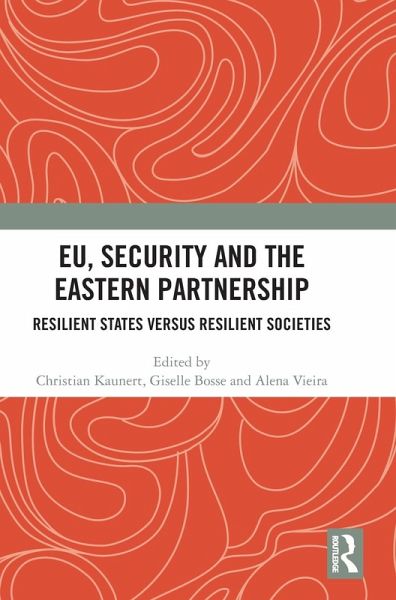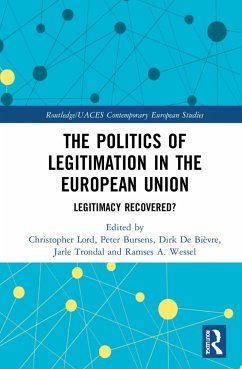
EU, Security and The Eastern Partnership
Resilient States versus Resilient Societies
Herausgeber: Kaunert, Christian; Vieira, Alena; Bosse, Giselle
Versandkostenfrei!
Versandfertig in 1-2 Wochen
169,99 €
inkl. MwSt.
Weitere Ausgaben:

PAYBACK Punkte
85 °P sammeln!
This book connects the scholarly discussions on 'security' and 'resilience', by examining the various definitions and meanings of the terms in the EU's Eastern Partnership (EaP) policy, and in what ways the EU has attempted to define the relationship between security and resilience in its official rhetoric and in policy practice.













